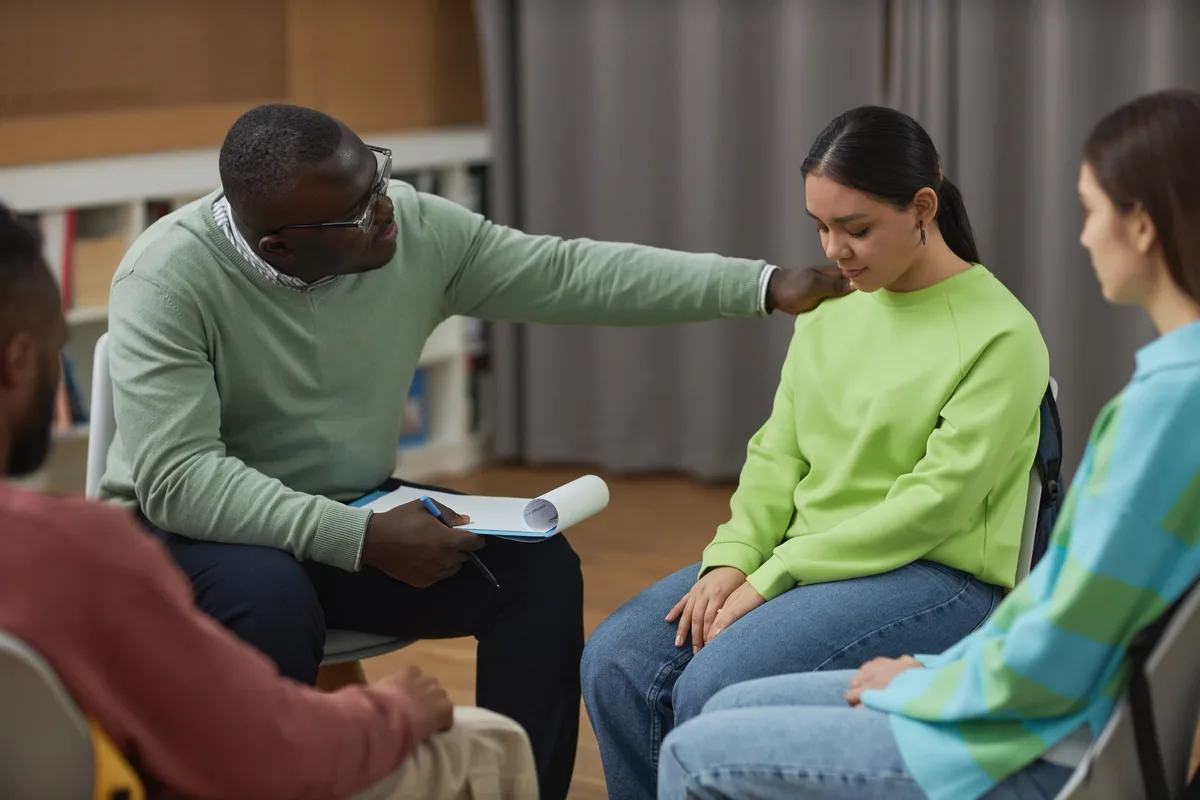24/7 Helpline:
(866) 899-221924/7 Helpline:
(866) 899-2219
Learn more about Bipolar Disorder Treatment centers in McLean County








































































Other Insurance Options

Sliding scale payment assistance

MHNNet Behavioral Health

Meritain

BlueCross

Carleon

Absolute Total Care

Health Partners

Sutter

Optima

Providence

Premera

CareSource

Ceridian

ComPsych

WellCare Health Plans

Optum

WellPoint

Highmark

Coventry Health Care

Ambetter